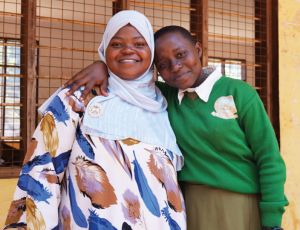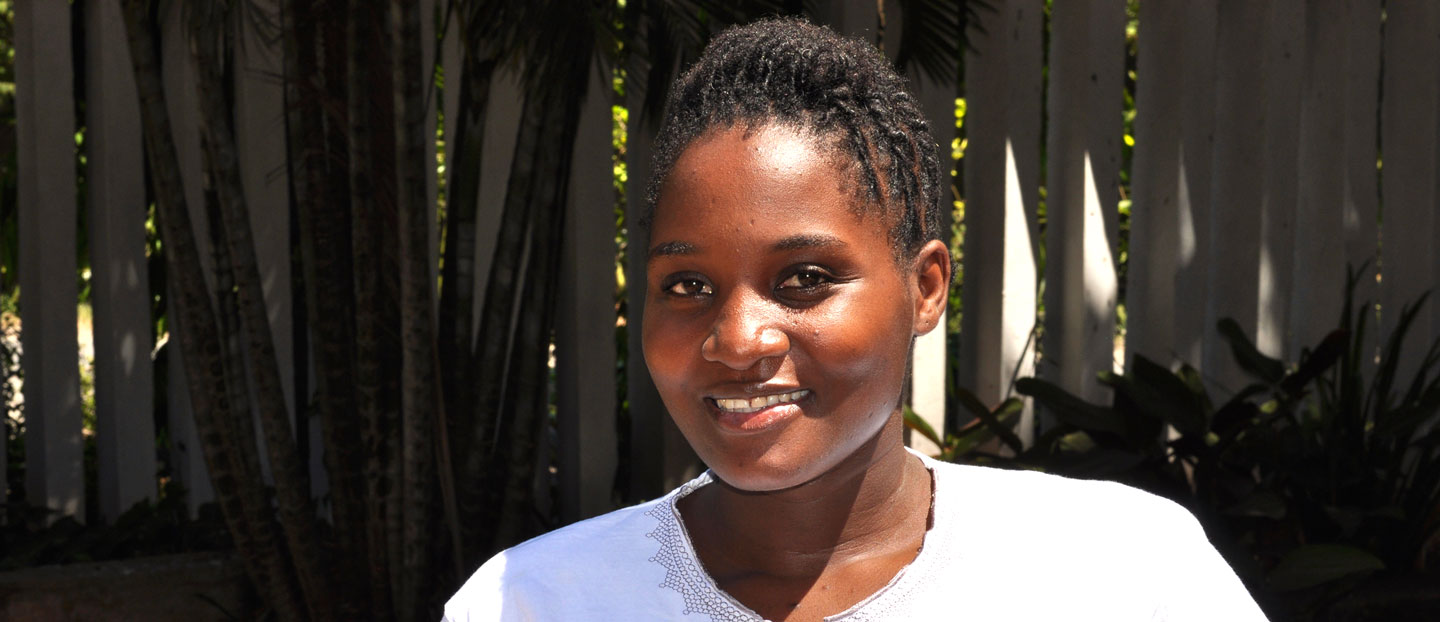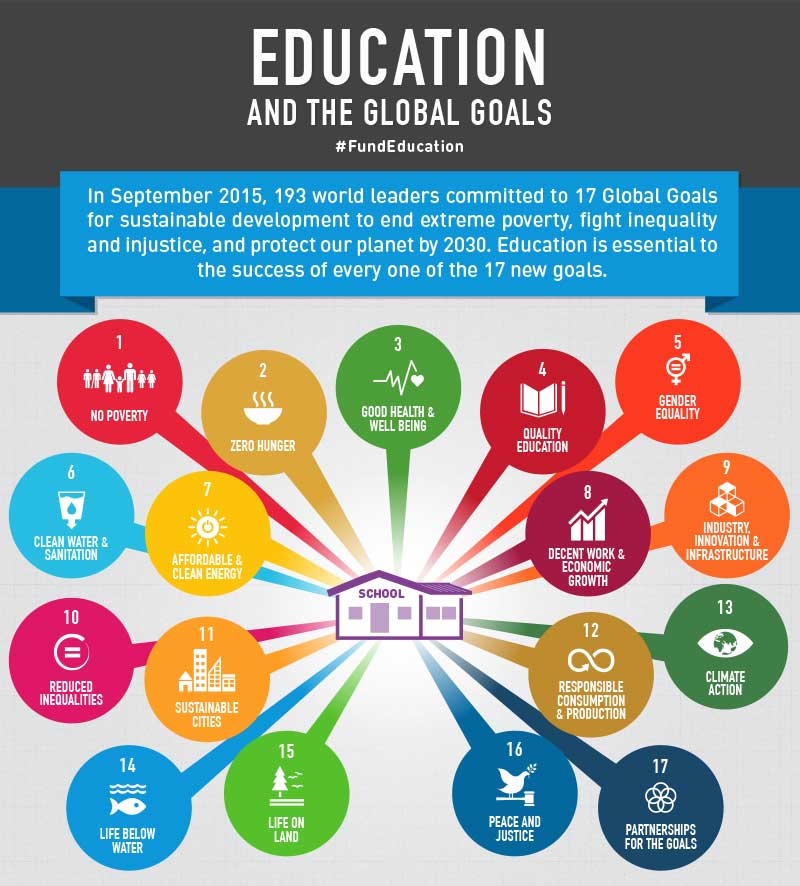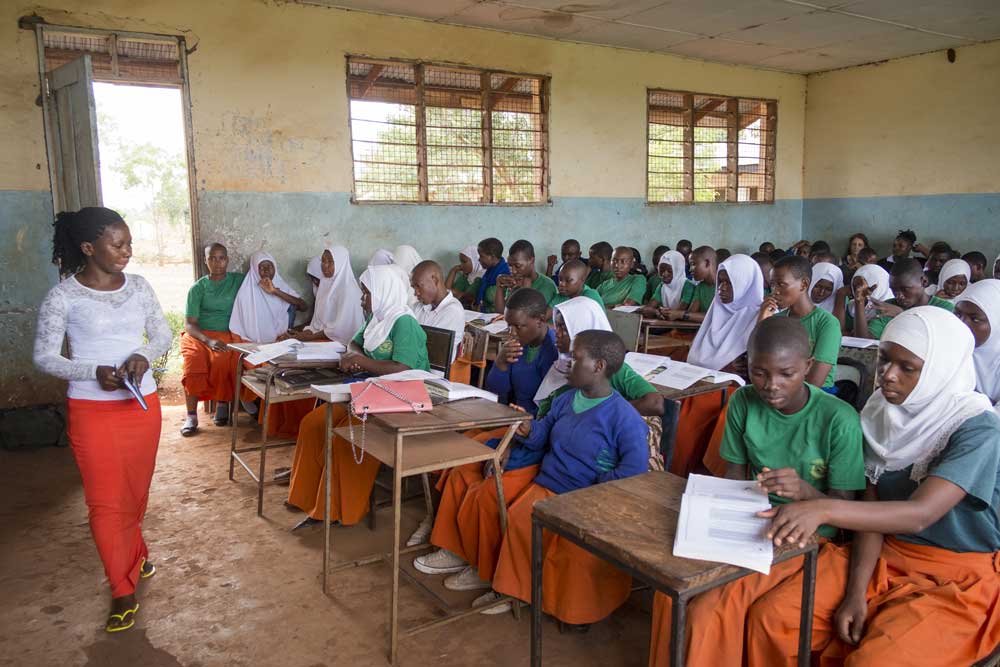
When she thrives, we all thrive
Together this giving season, we can make a difference that ripples outward to benefit everyone.


CAMFED and its alumnae leaders in the CAMA network democratize data through social and technological innovation, galvanizing community action that delivers with urgency, breaking down the barriers to girls’ education – the key driver of all Sustainable Development Goals.
At Tuesday’s opening plenary ‘Girls’ and Women’s Lens on the SDGs,’ gender equity advocate Melinda Gates committed $80 million from the Bill and Melinda Gates Foundation to be spent on gathering, improving the accuracy of, and evaluating the data critical to closing the gender gap, strengthening decision-making and accountability of policymakers and organisations dedicated to keeping gender equality at the core of international development.
We can’t close the gender gap without closing the data gap
Melinda Gates
CAMFED patron Julia Gillard joined the call for more rigorous data collection on what works to support marginalized girls around the globe to access quality education – and the personal, family, community and national transformation that ensues.

CAMFED has the data proving the effectiveness of its girls’ education program, key to achieving all the other SDGs.
Data and technology are central to accountability, transparency, scale and sustainability of CAMFED’s girls’ education programs. For CAMFED, the question of ‘who’ collects, owns and acts on data is critical. Its unique approach was recognized with the FinancialForce 360 Excellence Award this week. Theresia Moyo, Head of Education at CAMFED Tanzania, who was invited to speak about ‘Innovative Means to Collect and Use Data’ at the Women Deliver conference in Copenhagen, explains, “What is so different about CAMFED’s approach is that our community partners collect, own and act on the data. We put technology in the hands of the young educated women in our CAMA alumnae network, and of trained Teacher Mentors, who work with school committees, parents and district officials in the poorest parts of rural Africa, collecting data on girls’ situation, school entitlements, performance, retention, and progression, as well as the ‘give-back’ by alumnae and their community members, who are working to support many more marginalized students to go to school.”
Theresia’s presentation focuses on CAMA alumnae Learner Guides, who are trained in delivering context-sensitive life and learning skills at their rural schools, sharing data, acting on data, as well as galvanizing schools and communities to do the same.
Teaching a bespoke life skills curriculum, Learner Guides help students to build self-knowledge, discover their talents, build resilience, set goals and learn how to achieve them. They introduce students to new learning techniques, and support them to form groups and make time to study. They use their intimate knowledge and personal experience to support girls at threat of early marriage to return to school, and work with school committees to improve school grounds, provide school meals, and improve the quality of the curriculum.
CAMA member and Learner Guide core trainer Diris Martin joined the Women Deliver conference virtually, explaining what data and technology mean to her.
“By sharing the results of community action at local level – for example through graphs on the increased recruitment of qualified female teachers as a result of a community initiative to build teacher housing – young women help communities celebrate their achievements, and aim higher,” Theresia explains. “And by sharing results of the program with partners at government level, CAMFED is informing national policy and best practice in order to cascade the benefits to even more vulnerable children.”
Learner Guides form part of a holistic CAMFED program to push up school retention, progression and learning outcomes for marginalized boys and girls in 991 secondary schools in Zimbabwe and Tanzania, targeting 171,641 marginalized girls and 407,000 young people overall. They are having significant, measurable effect on school retention and literacy and numeracy outcomes, as revealed in a recent midline study tracking a sample of more than 22,000 students in 262 secondary schools.

Learner Guide Shani speaks to a class at secondary school in Bagamoyo, Tanzania
Headline results of the study reveal that the likelihood of a marginalized girl dropping out of school was nearly three times higher in Zimbabwe and more than one third greater in Tanzania in comparison schools compared with intervention schools, and that in Zimbabwe, in the comparison schools, 54% of marginalized girls who travelled over an hour to get to school were still in school at the midline, whereas the corresponding percentage was 72% in intervention schools. Marginalized girls at comparison schools in Tanzania improved their English/literacy scores by 14% from baseline to midline, while intervention schools showed an improvement of over 27%. Numeracy/mathematics scores in Tanzania showed even more impressive results among marginalized girls, where the improvement from baseline to midline at comparison schools was just over 1%, while students at intervention schools showed an improvement of over 59%.
CAMFED has been supporting girls to go to school, succeed and become change makers for over 23 years, and is working on ever more innovative ways to expand and analyse its rich datasets. The impact of its approach can be seen in its alumnae leaders, working in CAMFED’s program and executive teams across sub-Saharan Africa, and in schools and communities as mentors, role models and the true experts in girls’ education. “Being here at Women Deliver, I am so excited to see the premise on which CAMFED’s program was built now so widely endorsed among the young activists here, like international advocate Vivian Onano from rural Kenya, who underlines the importance of mentorship and networks,” Theresia says, “Technology and data in the hands of young women leaders and their communities – who understand the context and can act quickly on findings – is transforming the future of young people in rural Africa, accountably, at scale.”
Karen Henley $106
Drew Fixell $106
Vicky McKinley $13
Martha Girolami $158
Edward Rothenberg $316
Claire Etaugh $106
Barbara Ernst $47.6
Anne Cushman $15
daniel liptzin $94.9
Mary Glenn $47.6
Marvia Blake $31.9
Elizabeth Hall $316
Lashonda Brazil-Turner $10.9
Laura Hillstrom $106
Jackson Fahnestock $50